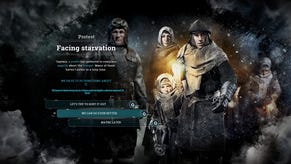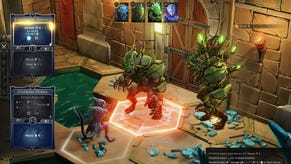Learn as You Play: Brunel Study Shows Positive Role of Computer Games
As the average gamer spends as much time on gaming as on homework, study reveals how online gaming is a training ground for work.
Press Release
16th February 2006
Brunel academics today unveil the results of a three-year study into online gaming communities, which defies the traditional educationalists' negative perception of gaming. The academics believe that computer games have a central role to play in the education and development of young people, contributing to the Qualifications and Curriculum Authority's strategy of work related learning, which helps children make an effective transition from school to work.
The study, which took the form of qualitative research into a community of players of the online game Runescape, shows that gaming is far from being a frivolous diversion from homework. The online worlds created by the gamers mirror many aspects of material society. For example, gamers are invited to join 'Klans' - highly disciplined co-operatives in which they share a common set of goals, they adopt identities such as merchant or warrior and they divide their time online between work and leisure. Most importantly, skills are learnt which are highly valued, with experienced players tailoring their 'training' to acquire the 'desirable' skills - a clear example of 'work related learning'.
Comments Nic Crowe from the Centre for Youth Work Studies in the School of Sport and Education at West London's Brunel University, who carried out the research in conjunction with Dr Simon Bradford: "A recent survey showed that most young people spend as much time on computer games as they do on their homework - three hours a day. This is the kind of information to strike fear into the hearts of concerned parents and educationalists alike, as they perceive it as idle 'downtime'. However, this is far too simplistic a view.
"Our study shows that the online gaming communities are complex and highly developed, acting as 'training grounds' for the transition from school to work" Nic continues: "When playing, gamers are undergoing a complex process of 'work related learning' - learning how to cope with work scenarios - which is far removed from the traditionally held negative view of gaming. Put simply, these games have a central - and positive - role to play in the development and education of young people."
Note to Editors
The study forms a chapter of a book, "Youth Cultures: Scenes, Subcultures and Tribes" to be published by Routledge. The chapter, entitled 'Identity and structure in online gaming: young people's symbolic and virtual extensions of self' is written by Nic Crowe and Dr Simon Bradford, School of Sport and Education, Brunel University.
The 'UK Children Go Online Survey', by Sonia Livingstone, Magdalena Bober, April 2005 shows that:
- the average gamer spends as much time on gaming as on homework
- 82% of children own at least one games console
- 70% of children play online.
Winchester March
Intern
Fuse PR - 2005 CiB AWARD WINNER: Best Consultancy
and 2005 CIPR AWARD WINNER: Outstanding Team in Education & Training
Building 5
50 Brook Green
Hammersmith
London
W6 7BJ
D/L: 020 8752 3210
Switchboard: 020 8752 3200
Fax: 020 8752 3219
www.fusepr.com
Fuse PR Sponsored Intellect Report Provides First Clear Snapshot of the UK's Convergence Readiness
www.fusepr.com/convergence








